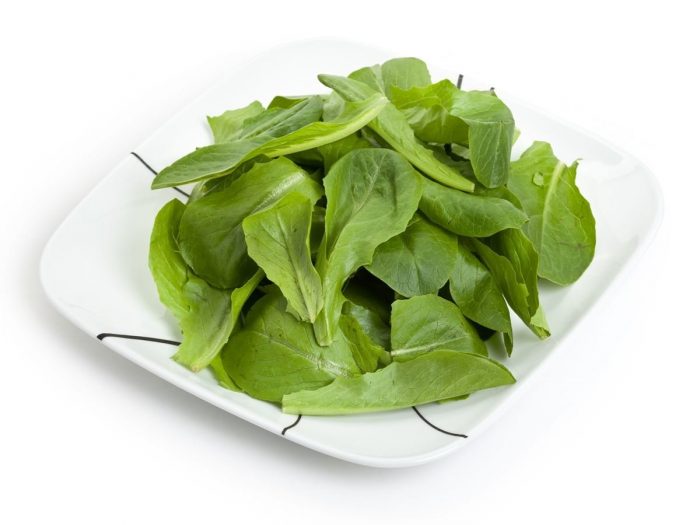The health benefits of Vitamin K include a reduced risk of blood clotting, prevention of osteoporosis, relief from menstrual pain, protection from internal bleeding, prevention of biliary obstruction and reduced menstrual flow.
Vitamin K provides a total balance of 80 nutrients that are essential for the human body. This includes minerals, antioxidants, neuronutrients, enzymes, vitamins, amino acids, herbal extracts, carotenoids, various trace elements, bioflavonoids and other complementary co-factor ingredients.
Vitamin K consists of a group containing 2-methilo-naphthoquinone derivatives. The three notable forms of vitamin K are K1 (phytonadione, phylloquinone, phytonactone), K2 (menaquinones), which is formed by natural bacteria present in the intestines, and K3 (menadione).
Vitamin K is considered to be a fat-soluble vitamin, which is present in the intestines of the human body. The most vital role that vitamin K plays is in controlling blood clotting and preventing blood loss during injury. Vitamin K also helps in assisting the absorption of calcium content from food, which helps in the formation and maintenance of healthy bones.
 ==============================================================================================================================
==============================================================================================================================
Health Benefits of Vitamin K
The health benefits of Vitamin K include the following:
Osteoporosis: The major symptom of osteoporosis is the reduction of bone density. It typically occurs after the age of fifty and is found in many post-menopausal women. It causes many complications and progresses silently when kept untreated for a number of years. After years of this gradual bone loss, the symptoms and signs of osteoporosis appear, such as spinal deformity, fractures and pain. It is around the ages between 20 and 30 that an individual’s bone mass decrease starts occurring. This is the time when bones start reaching their maximum strength and density. After this peak time, bone building starts to wane. For women, maximum bone loss starts occurring after menopause, when the estrogen levels decline. The intake of leafy vegetables, collard greens, broccoli, spinach, brussels sprouts and lettuce, all of which are rich in Vitamin K, is essential for the body. Even cow milk is good and rich in Vitamin K.
Blood Clotting: Another primary function of Vitamin K is to regulate blood clotting, due to the role in amalgamation of prothrombium. This is an automatic process that happens at the time of injury due to tears in blood vessels. Blood clotting consists of a set of molecules, which are continuously circulating through the bloodstream. Vitamin K helps in the regulation of blood clotting by transporting calcium around the body. Protein Z helps in enhancing the action done by thrombin so as to promote an association with phospholipids that are present in cell membranes. Vitamin K2 helps in improving blood disorders called myelodyplastic syndromes.
Excessive Menstrual flow: A woman experiencing excess menstrual bleeding would be deficient in Vitamin K. This will help in reducing the blood flow out of the body.
Internal Bleeding: Vitamin K helps in reducing the threat of bleeding in the liver, poor nutrient absorption, jaundice or the combination of long term use of antibiotics or aspirin. Some of the problems associated with the gastrointestinal system due to a decrease of this vitamin include obstructions, sprue, Crohn’s disease, and colitis. These are due to a reduced content of Vitamin K.
Menstrual pain: Vitamin K helps in the proper functioning of the hormones at the right time for regular periods, which will help in reducing menstrual pain.
Pregnant Women: Pregnant women suffering from vomiting and nausea are often deficient in Vitamin K. This Vitamin intake will show good results by providing relief in less than seventy two hours and preventing mild forms of these symptoms in the future.
Hemorrhaging in Babies: This vitamin is injected into newborns to prevent hemorrhaging. Vitamin K is even essential for asthmatic children, and can be treated through continuous intake of oral drops of this vitamin.
Biliary Obtrusion: Prolonged treatment with oral antibiotics causes biliary obstruction, celiac disease, regional enteritis and ulcerative colitis, and is made even worse due to a deficiency of vitamin K. Therefore, regular vitamin K intake can prevent these complications from occurring.
Healthy Digestive/Immune Systems: In order to boost Vitamin K levels, the intake of Young Coconut Kefir, Coco-Biotic, Raw Cultured Vegetables, Milk Kefir, Liquid Spirulina by a human body can be very beneficial. This will help in increasing the content of Vitamin K and protect the digestive and immune systems.
Regulation of Blood Sugar: This vitamin plays an important role in blood sugar regulation. The pancreas makes insulin and contains the second highest content of Vitamin K in the body.
Other Benefits: Vitamin K can increase the flow of urine, and relieve menstrual pain, cramps, excessive menstrual flow. It can also enhance the functioning of the liver, increase longevity and vitality, help in maintaining strong bones in the elderly, reduce fractures, maintain cardiac muscles, capillaries and blood vessels, and increase blood circulation in tissues and peripheral bodies. Vitamin K acts as a protein, which is seen to be one of the strong inhibitors of arterial calcification.
No comments:
Post a Comment